第16章 Part The First (16)
The constitution of France says that every man who pays a tax of sixty sous per annum (2s.6d.English) is an elector.What article will Mr.Burke place against this? Can anything be more limited, and at the same time more capricious, than the qualification of electors is in England? Limited-because not one man in an hundred (I speak much within compass) is admitted to vote.Capricious- because the lowest character that can be supposed to exist, and who has not so much as the visible means of an honest livelihood, is an elector in some places: while in other places, the man who pays very large taxes, and has a known fair character, and the farmer who rents to the amount of three or four hundred pounds a year, with a property on that farm to three or four times that amount, is not admitted to be an elector.
Everything is out of nature, as Mr.Burke says on another occasion, in this strange chaos, and all sorts of follies are blended with all sorts of crimes.William the Conqueror and his descendants parcelled out the country in this manner, and bribed some parts of it by what they call charters to hold the other parts of it the better subjected to their will.This is the reason why so many of those charters abound in Cornwall; the people were averse to the Government established at the Conquest, and the towns were garrisoned and bribed to enslave the country.All the old charters are the badges of this conquest, and it is from this source that the capriciousness of election arises.
The French Constitution says that the number of representatives for any place shall be in a ratio to the number of taxable inhabitants or electors.
What article will Mr.Burke place against this? The county of York, which contains nearly a million of souls, sends two county members; and so does the county of Rutland, which contains not an hundredth part of that number.
The old town of Sarum, which contains not three houses, sends two members;and the town of Manchester, which contains upward of sixty thousand souls, is not admitted to send any.Is there any principle in these things? It is admitted that all this is altered, but there is much to be done yet, before we have a fair representation of the people.Is there anything by which you can trace the marks of freedom, or discover those of wisdom?
No wonder then Mr.Burke has declined the comparison, and endeavored to lead his readers from the point by a wild, unsystematical display of paradoxical rhapsodies.
The French Constitution says that the National Assembly shall be elected every two years.What article will Mr.Burke place against this? Why, that the nation has no right at all in the case; that the government is perfectly arbitrary with respect to this point; and he can quote for his authority the precedent of a former Parliament.
The French Constitution says there shall be no game laws, that the farmer on whose lands wild game shall be found (for it is by the produce of his lands they are fed) shall have a right to what he can take; that there shall be no monopolies of any kind- that all trades shall be free and every man free to follow any occupation by which he can procure an honest livelihood, and in any place, town, or city throughout the nation.What will Mr.Burke say to this? In England, game is made the property of those at whose expense it is not fed; and with respect to monopolies, the country is cut up into monopolies.Every chartered town is an aristocratical monopoly in itself, and the qualification of electors proceeds out of those chartered monopolies.
Is this freedom? Is this what Mr.Burke means by a constitution?
In these chartered monopolies, a man coming from another part of the country is hunted from them as if he were a foreign enemy.An Englishman is not free of his own country; every one of those places presents a barrier in his way, and tells him he is not a freeman- that he has no rights.Within these monopolies are other monopolies.In a city, such for instance as Bath, which contains between twenty and thirty thousand inhabitants, the right of electing representatives to Parliament is monopolised by about thirty-one persons.And within these monopolies are still others.A man even of the same town, whose parents were not in circumstances to give him an occupation, is debarred, in many cases, from the natural right of acquiring one, be his genius or industry what it may.
Are these things examples to hold out to a country regenerating itself from slavery, like France? Certainly they are not, and certain am I, that when the people of England come to reflect upon them they will, like France, annihilate those badges of ancient oppression, those traces of a conquered nation.Had Mr.Burke possessed talents similar to the author of "On the Wealth of Nations." he would have comprehended all the parts which enter into, and, by assemblage, form a constitution.He would have reasoned from minutiae to magnitude.It is not from his prejudices only, but from the disorderly cast of his genius, that he is unfitted for the subject he writes upon.Even his genius is without a constitution.It is a genius at random, and not a genius constituted.But he must say something.He has therefore mounted in the air like a balloon, to draw the eyes of the multitude from the ground they stand upon.
Much is to be learned from the French Constitution.Conquest and tyranny transplanted themselves with William the Conqueror from Normandy into England, and the country is yet disfigured with the marks.May, then, the example of all France contribute to regenerate the freedom which a province of it destroyed!